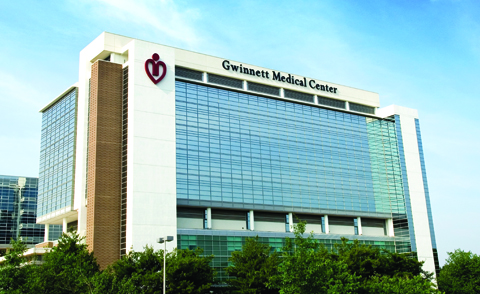Fourteen communities in a national care improvement project — including an area in suburban Atlanta — saw a significant decrease in Medicare patients who were rehospitalized within 30 days of a discharge, a new study shows.

The Medicare readmission rate for an area served by Gwinnett Medical Center in Lawrenceville, Eastside Medical Center in Snellville, Rockdale Medical Center in Conyers and Newton Medical Center in Covington fell by 7.5 percent during the two-year program. This area — designated a community for purposes of the project — is east of the city of Atlanta.
Overall Medicare hospitalizations in that area also fell by 7.37 percent.
The group of 14 communities nationally reduced readmissions by 5.7 percent over a two-year period, vs. a 2 percent drop in a control group.
The study was published this week in the Journal of the American Medical Association.
Coordinating the efforts to lower readmission rates were Quality Improvement Organizations (QIOs), state-based groups funded by Medicare to review medical care and help beneficiaries with complaints.
Dr. Adrienne Mims, medical director of Alliant GMCF, the QIO in Georgia, told Georgia Health News on Wednesday that the initiative was “quite a big success.”
The QIO convened meetings with representatives of the four hospitals, 12 nursing homes, five home health agencies, physicians, hospice organizations, senior centers, and area agencies on aging, among other groups.
Mims said the meetings with health stakeholders discussed reasons for readmissions and how to implement the best strategies for preventing avoidable return trips to hospitals.
One common tactic uses the “coaching’’ method. A coach assigned to a patient may conduct a hospital visit, a home visit and follow-up phone calls.
Patients and their family members become actively engaged in their transition to home by keeping a personal record, knowing the “red flags” for trouble, ensuring they get the right medications, and pursuing appropriate follow-up care.
Avoidable hospital readmissions cost Medicare billions of dollars a year. Almost 25 percent of heart failure patients on Medicare, for example, are readmitted to the hospital within 30 days of discharge.
Overall, one in five Medicare patients returns to the hospital within 30 days of being discharged.
The project prevented an estimated 80 Medicare hospital admissions in the suburban Atlanta area, translating into $750,000 in savings, Mims said.
Readmissions are a focus of the Affordable Care Act, which penalizes hospitals that have high rates.
“Although there may be financial penalties for excess readmissions, the best reason to be doing this is because it is the right thing to do for our patients,” Dr. Alan Bier, executive vice president and chief medical officer of Gwinnett Medical Center, said in a statement. “Better education about care and medication combined with better follow through on care has been shown to significantly drive down readmissions.’’
The U.S. Department of Health and Human Services has established a goal of a 20 percent reduction in avoidable rehospitalizations.
QIOs, with federal funding, are now working with 400 communities across the country on readmissions.
In Georgia, this care transitions work is taking place in cities such as Atlanta, Athens, Augusta, Macon, Savannah, and Dalton, Mims said.
“Millions of older patients across the nation know what happens when their health care is not well coordinated—they end up back in the hospital,” said Mary Ellen Dalton, president of the American Health Quality Association, the national association representing QIOs, in a statement.
“Hospital readmissions are not just a hospital problem, or a patient problem,’’ Dalton said. “They are a community problem, and ensuring that all sectors of a community work together to make care transitions effective is vitally important.”
